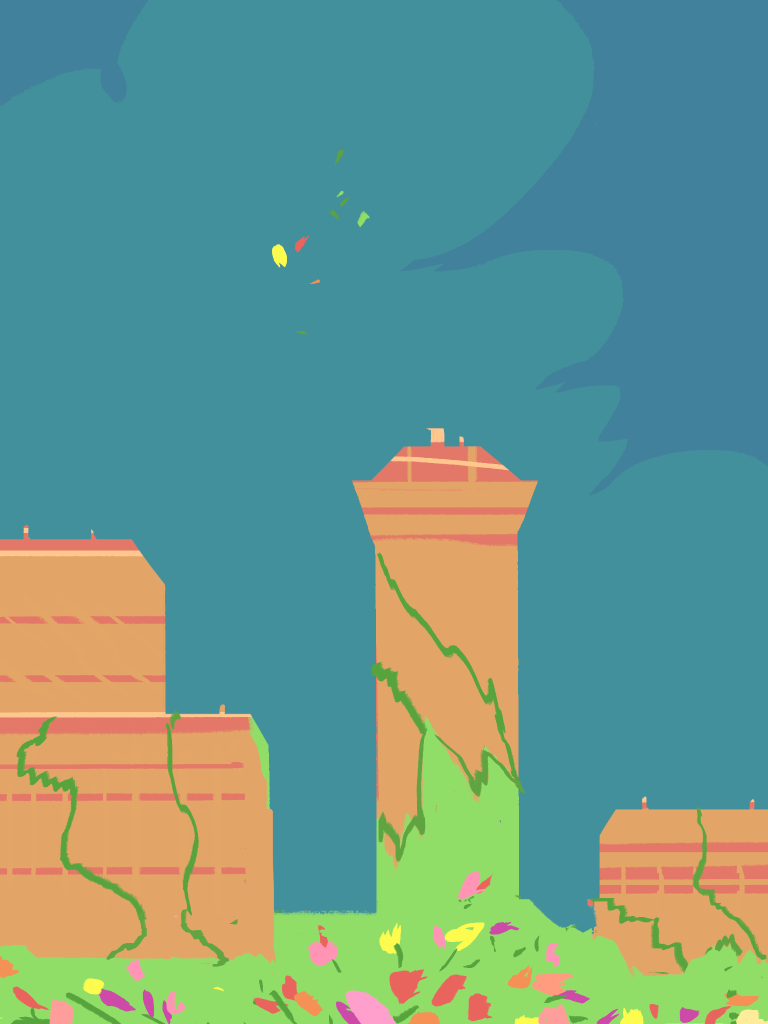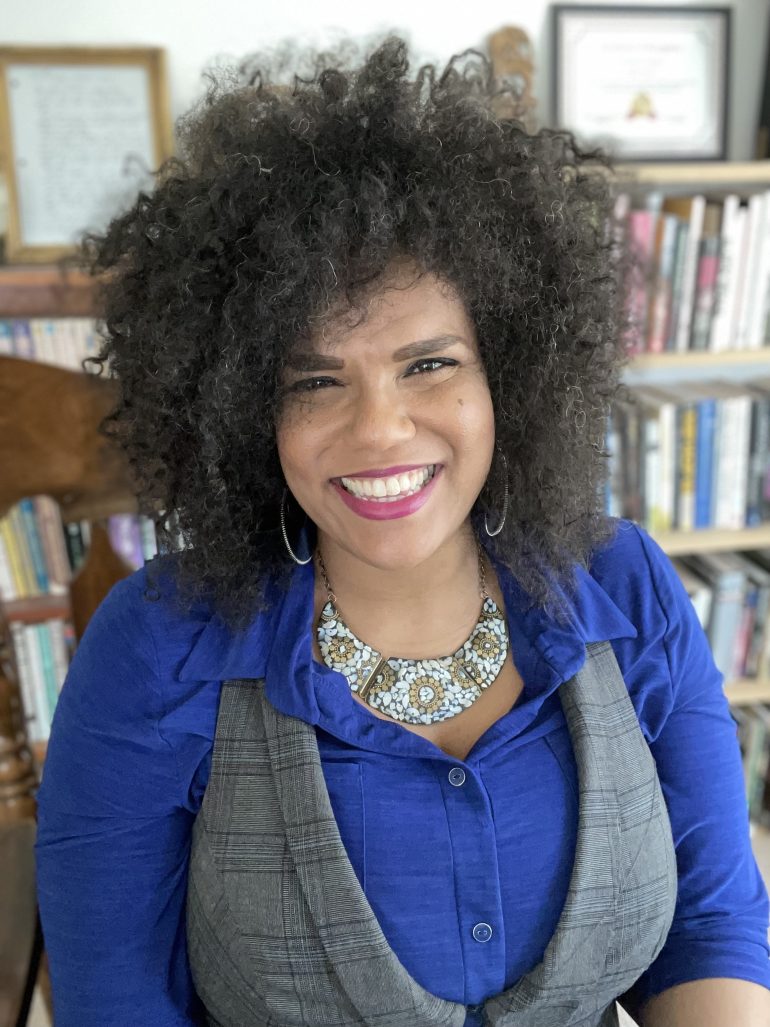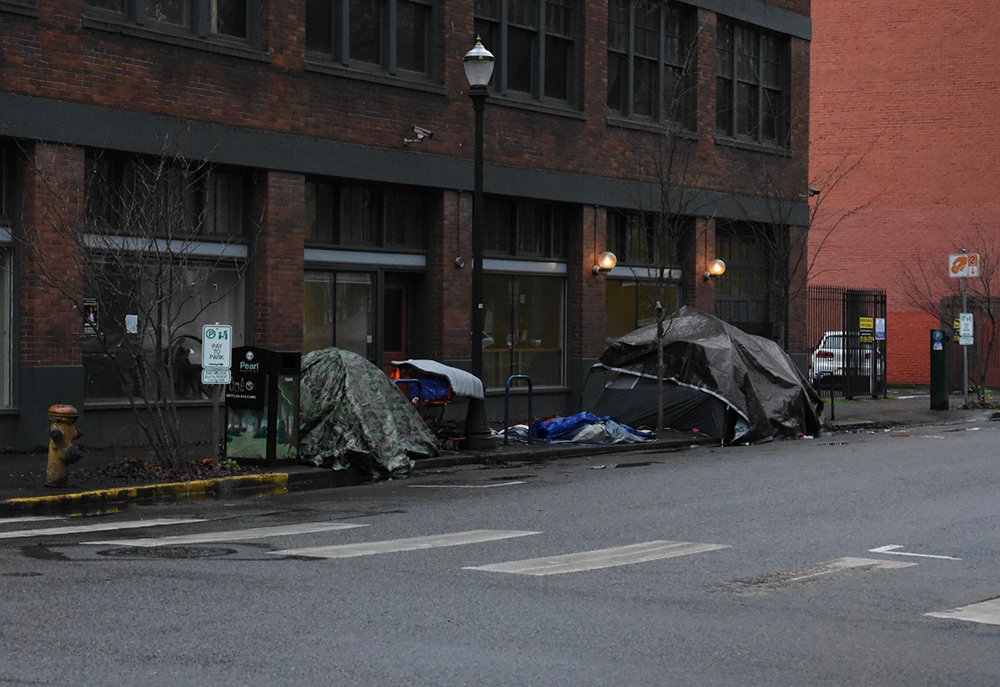Abolition, as defined by Critical Resistance: “Prison Industrial Complex abolition is a political vision with the goal of eliminating imprisonment, policing, and surveillance and creating lasting alternatives to punishment and imprisonment. From where we are now, sometimes we can’t really imagine what abolition is going to look like. Abolition isn’t just about getting rid of buildings full of cages. It’s also about undoing the society we live in because the PIC both feeds on and maintains oppression and inequalities through punishment, violence, and controls millions of people. Because the PIC is not an isolated system, abolition is a broad strategy. An abolitionist vision means that we must build models today that can represent how we want to live in the future. It means developing practical strategies for taking small steps that move us toward making our dreams real and that lead us all to believe that things really could be different. It means living this vision in our daily lives. Abolition is both a practical organizing tool and a long-term goal.”
A few months ago, when our staff first started forming our thoughts about a themed issue on abolition, I knew we needed to include the perspective of visionary scholar Walidah Imarisha. A multifaceted artist, she has published works of poetry, essays and fiction, and has edited multiple projects in magazine and book form. In collaboration with adrienne maree brown, she co-edited the short story collection of visionary fiction Octavia’s Brood, and her most recent book Angels with Dirty Faces was a finalist for the 2017 Oregon Book Award.
Imarisha was gracious in speaking with me for an hour during finals week at Portland State University, where she is an Associate Professor and Director of the Center for Black Studies. What emerged was an inspiring conversation about the past, present, and future, and how we can root out the weeds of oppression to cultivate a more just society for everyone.
What stood out to me was Imarisha’s consistent, conscious inclusion of the people who have been involved in social justice work for as long as the United States has maintained a racialized system of control—from chattel slavery to the contemporary prison industrial complex.
This interview has been edited for clarity.
Jeremiah Hayden: I’m curious to hear a quick sort of overview from you on the history of abolition. Where does this start?
Walidah Imarisha: I think that modern day abolitionists call the movement to end police and prisons an abolition movement, specifically showing the connections to slavery—recognizing that the policing system and the prison system are direct results from the systems of slavery—linking those together and saying that the work of abolishing slavery is not finished as long as we have these oppressive systems. W.E.B. Dubois talked about abolition democracy, and he was very clear that ending slavery is not enough for there to be abolition; that abolition requires the presence of justice, it requires the presence of the ability for communities that have been so brutally oppressed to have the resources they need to be able to achieve self-determination, and, you know, live. I think that framing is incredibly important for the current abolitionist movement. This is not just about saying, all we want is to end policing; all we want is to shut every prison down. What we want is the institution of justice for everyone. Those institutions stand in the way of that, but they are not the end goal. The end goal is to create a society where everyone has what they need, and everyone who has been historically oppressed and disadvantaged actually has the resources individually and collectively to determine their own destinies.
JH: How do you think about conversations around reform versus abolition? Can this operate within a state system?
WI: I don’t think that there is necessarily an organized response from the abolitionist movement. I can speak from my position, and I think that can be different from other people’s. The modern prison abolitionist movement isn’t new—the Black Panther Party called for abolition in their updated 1972, ten point platform. There is a book in 1976, Instead of Prisons, that lays out a plan to ending the criminal legal system in a ten year time frame. I very much root in the idea of the Black Panther Party. Their free breakfast program, which led to the federal lunch programs, their free health care clinics—they actually had over 70 different programs, that they called “Survival Pending Revolution.” We have free and reduced lunch and breakfast programs in schools from the federal government, because the Panthers fed tens of thousands of children of every color, every day, for years, because the federal government wasn’t doing it. And they shamed the federal government into doing this—which is not good. The food is atrocious and is completely devoid of nutrition, whereas the Panthers continually served a balanced, nutritious, healthy breakfast.
I think that’s the framework. There’s often this idea that, you know, there’s reform and there’s abolition and those things have to be completely separate. And with abolition, either we get everything or it’s reform. And I think that denies the way actual change happens. But I also think it becomes a very privileged position because it says until we can achieve everything at once, we will allow these systems to continue to incarcerate, exploit, brutalized and murder those that it is targeting. I don’t think that’s an option.
Systems of oppression, especially within the U.S., have proven themselves incredibly adept at transformation and responding. The reason we have the prison industrial complex is because enslaved Black folks led a global movement to end slavery as an institution, and they were successful, and then the system morphed into the prison industrial complex. I think we have to be clear that this system is not going to allow this control to be taken from it.
JH: You mentioned that the system has proven itself really adept at adjusting and adapting to these scenarios and it makes me think of the profit aspect of this—things like house arrest with ankle bracelets, where, if you don’t have to rent a prison anymore, that comes off of your overhead for profit. Which is kind of the point here for the system of power, right, the profit of it. Is that how you view it?
WI: It’s a twin point, and I think Ruth Wilson Gilmore’s work (The Golden Gulag) is really important here. Her point is that if it was just about money, if that was the only motivation, this would not make sense. It absolutely generates profit, but it does not generate enough profit to justify the entire systemic apparatus. We have to understand this is about control. This was about controlling potentially rebellious communities—specifically Black communities after the end of slavery. How do we ensure that we are able to exploit people’s labor for free or as cheap as possible, and how are we able to maintain physical and metaphoric control over these communities so that they will not be able to move and organize freely, to overthrow us? That was built into slavery. I mean, it’s the foundation of modern capitalism, obviously, it is fundamentally about economics, but there was no way that could have happened without the continual enforcement and control. Because the minute that Black folks in Africa knew what was happening, they resisted, and there was never a moment of not resisting. Enslaved uprisings were the biggest fear—that and obviously, Indigenous communities—and truly the biggest fear was those groups joining together in solidarity. I think that has to be understood that prisons are not just about profit, and I think that messaging has become a problem, because it denies the way that prisons fundamentally are racialized, and are fundamentally about control.
JH: I’m curious to hear you talk a little bit about the 18th century construction of race as a way to separate people—not to be class reductionist or something—but like, the (19th century) white yeomanry in the Antebellum South, and that fear of solidarity. Can you talk about that a little bit?
WI: I think continually, the system has had to create these hierarchies that give concrete and tangible privilege to working class and poor white people; to invest them in a racist system of oppression and hierarchy—in essence, turning them against their own class interests. And that was a very conscious construction. A lot of folks who focus solely on class talk about the idea that enslaved Black folks and indentured white folks were the same, and they were never the same, right? There was never a moment when they were the same. But they were certainly closer in experience at a certain point than later, and laws were passed protecting white men, primarily laborers, minimally, to separate them out from enslaved Black folks to make that difference feel much larger—specifically to working class and poor white people—so they would recognize, oh, I am white, so I am better than someone else, focusing their attention downward, rather than focusing their attention upward.
JH: I was inspired by the imagination of new futures, and how abolition can be taught as a construction of something new and not so much as the destruction of something that is currently ongoing. Your introduction in Octavia’s Brood—I really liked the idea because it’s sort of a misnomer for a lot of people who hear like, “defund the police.” They go, that’s abolition; that just means take all the money away from the police and stop there. That hits a really interesting nerve with a lot of people, and there’s been a lot of discussion about the framing of that. I’m curious about how our language affects our perception of the world, and how changing our language to talk about the future in new ways can have the kind of effect that we’re talking about with abolition. Did I ask a question?
WI: Yes, you asked an important question. I guess I would say first and foremost that one of the failings of sort of leftist radical movements is the idea that just presenting concrete facts and real history, and real information will be enough to sway people.
If we want to fundamentally change people, we have to shift frames. This notion of how to appeal to a broad base, the idea that we have to use a language that can reach everyone—most often people are not conscious of the frames that they’re using on a day-to-day basis. That is part of why I do work around visionary fiction and radical sci-fi. Because, especially for things like abolition, it feels so alien because we’ve all grown up in the system that has given us the frame that there is no ability to be safe or be a functional society without police and prisons. Even though there are examples around the world now, even though these constructions are incredibly new, and we have millennia upon millennia of human existence without them—none of that matters. Because we have all grown up in a society that says this.
The other thing around the notion of language being too radical or not: all real substantive movements for social change have been incredibly unpopular in the mainstream. Most often when people are talking about reaching the mainstream, they’re talking about reaching a certain segment of white people. I think it’s important to recognize that looking back on the things that now seem like, well, of course, everyone agreed with Martin Luther King, Jr.; of course, everyone agreed that slavery should have been abolished; of course, everyone agreed that women should have the right to vote; of course, you know, on and on. There was no, of course. The majority of white people, the majority of folks with dominant power, in every single one of those instances, were fine with that system continuing forever.
“What if abolition isn’t a shattering thing, not a crashing thing, not a wrecking ball event? What if abolition is something that sprouts out of the wet places in our eyes, the broken places in our skin… What if abolition is something that grows?
Alexis Pauline Gumbs, “Growing Freedom Seeds”

(Gumbs is) an amazing, Black feminist scholar, visionary, thinker, abolitionist poet. This notion of growing is a really powerful one, and a framing that all abolitionists should be using. She expands on it in the piece and talks about when you pull weeds, it’s not just so you don’t have weeds. You pull weeds so that you have the space to grow something that can sustain your body, that can be beautiful, that can help the environment, that can bring bees, that can create oxygen. You are pulling those weeds for the point of creating something new when you make a garden. You don’t just say okay, well, the weeds are gone, my garden is done. That is just the first step, and it’s not the most important step. The most important step is what will I plant, and how will I nurture it so that it grows well, and strong?
What are we going to plan? What are the systems of accountability we are going to create? And how are we going to nurture and grow those in a way that helps us all be healthy and whole? It’s easier to say let’s just smash all the prisons. But when we’re standing in the rubble, what are we going to do when someone harms someone?
It is very helpful that the progenitors of the current prison abolitionist movement called it abolition—because it continually says, we have experienced this before, we know what it means to oppose a system that people could not imagine life without. White people could not imagine an America without slavery. Slavery existed in this country for longer than prisons have. Again, the majority of white folks were fine with it continuing forever. Many of them who did not own slaves did not have an economic stake in this. They supported slavery. Another reason we cannot wait until the middle moves; because the middle is quite comfortable, and it doesn’t want to move.
JH: The point is to let the middle be comfortable. You’re talking about The Work. There’s not a utopia, where it’s all finished, and it all goes well—which is one of the arguments that people have. Oh, do you think you’re just going to create this utopia? That’s not gonna happen. That’s not really part of anyone’s conversation, right?
WI: Because humans are beautiful and we’re complex and we’re messy, and we can’t read each other’s minds. So, we do harm, and whether that harm seems to be small or large, every one of us has harmed someone. We’ve all had a variety of responses, often not wanting to take responsibility, because we don’t want to see ourselves like that. What does community accountability look like? Community accountability, and saying, what do we do when someone harms another person is not about a future where there are no prisons—we have to do that now. Because prisons and police are not about harm, right? Prisons and police are about social control. They’re not about making any of us safer. They’re not about punishing people who have done things wrong. They’re not about preventing future harm. Crime is a political, social control construction.
It’s so hard to separate those pieces out because society works from the minute we get here to say these are intertwined. If you go to prison, it’s because you did something wrong. Prisons are there to protect us; police are there to protect us. A lot of the reform rhetoric accepts that as a given, that police—it may be a deeply flawed system, it may need deep restructuring, but the point of police is to protect. That is not the foundational point. Police grew from slave patrols. Their foundational point is to control, contain, and exploit potentially rebellious communities for the sake of a white supremacist capitalism.
JH: To protect capital.
WI: They do it quite well. The same with prison. The statistics speak to this. The vast majority of sexual violence will never see a courtroom. Like two percent of crimes actually get addressed in the legal system.
JH: In any other field, that would be a bad investment.
Angela Davis, in Are Prisons Obsolete? talks about, what is the number one abolitionist strategy? Well, it’s to address the inequalities in society; it’s to make sure people have housing and food and all of the basics. That is the number one abolitionist strategy. Abolition can’t just be about police and prisons—that is, it has to be about police and prisons, because that is literally and figuratively the stick that is used against us.
JH: They’re actually policing the things that we’re not investing in. They’re just policing the fallout of not investing in these other things.
WI: They are the shock troops for the system that allows its continual functioning, and they sort of draw the eye of the conversation of violence to them in a way that normalizes the violence that is inherent in the everyday functioning of the system. The healthcare system is fundamentally violent. You know, any system that denies you the basic things you need to live because you don’t have the money, that is a violent system; but we never talk about it in that way in mainstream conversations. We say that’s unfortunate; we say, it’d be nice if that wasn’t the way; but we never say this is the same. This is a violence on the level of putting a gun to someone’s head and pulling a trigger, but it is happening in the millions, in the tens of millions every day in every aspect of society. That’s an important role that the police in the criminal legal system play as well. They say this is what violence looks like, and if you are not being beaten with a billy club, if you are not being shot in the back, if you are not literally being locked in a cell, then it may not be nice, but it’s not violence.
JH: It’s spectacular violence versus slow violence. Is there anything that you wish I’d asked you here that you’d like to throw at me?
WI: One of the fundamental pieces of abolition is that it centers the leadership and the vision of folks who live at the intersections of identity and oppression, because that makes our entire community safer and more whole. There’s no real abolition without centering queer and trans folks, women, cis women, folks with disabilities, young folks, immigrant folks, and obviously, all of those folks of color and everyone who sits at the intersections of all of those. People say that in this sort of, ally way—like this is the right thing to do. But it is actually the society that will create space for all of us.
JH: Because building the thing is the point.
WI: Building the thing and recognizing that oppressed, folks, when we build, we build for justice.
Recommended Reading List:
Captive Genders: Trans Embodiment and the Prison Industrial Complex – Edited by Nat Smith and Eric Stanley
Care Work: Dreaming Disability Justice – Leah Lakshmi Piepzna-Samarsinha
We Do This Til We Free Us: Abolitionist Organizing and Transforming Justice – Mariame Kaba
Octavia’s Brood – Edited by adrienne maree browne, Walidah Imarisha
No More Police: A Case for Abolition – Mariame Kaba and Andrea J. Ritchie
The Golden Gulag – Ruth Wilson Gilmore
Instead of Prisons – Prison Research Education Action Project
Are Prisons Obsolete? – Angela Davis
Freedom Seeds – Alexis Pauline Gumbs
Abolition Now!: Ten Years of Strategy and Struggle Against the Prison Industrial Complex





